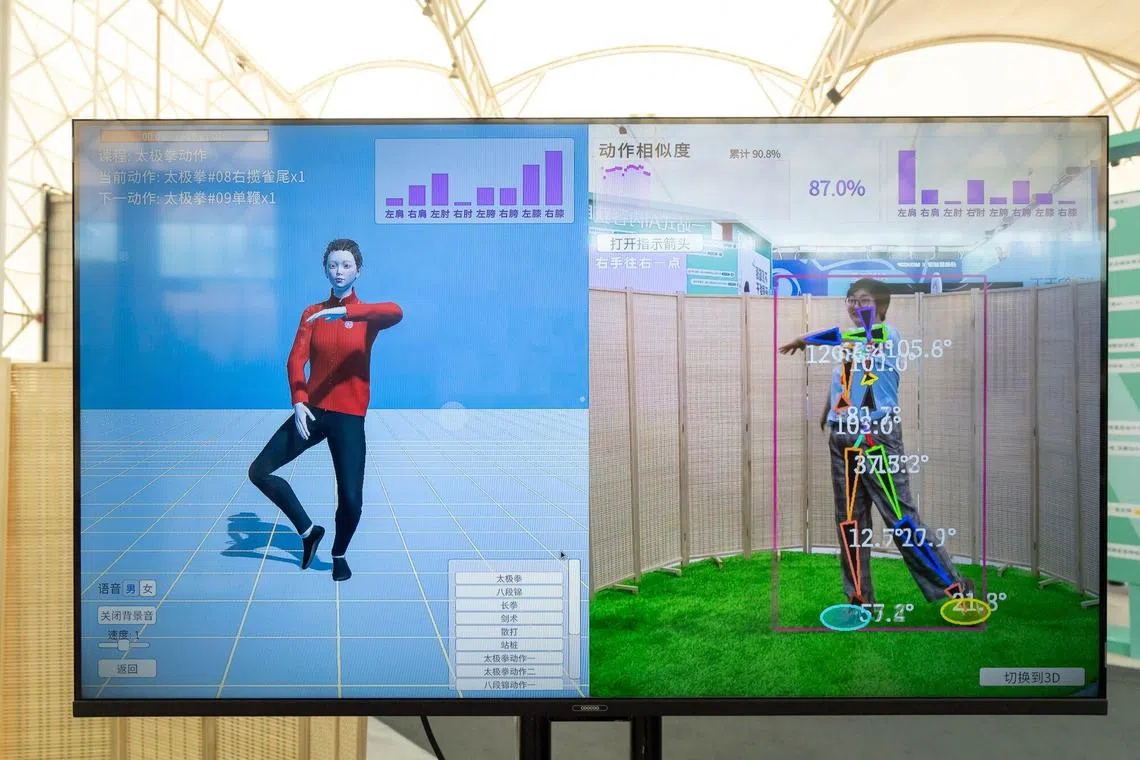Xi says China must ‘overcome’ AI chip challenges
Sign up now: Get insights on Asia's fast-moving developments

China aims to dominate the artificial intelligence sector.
PHOTO: BLOOMBERG
Beijing - President Xi Jinping said China must “overcome” the challenges of developing core AI technologies including high-end chips, state media reported on April 26, as Beijing seeks to become a world leader in the rapidly developing industry.
China aims to dominate the artificial intelligence sector, a goal complicated by the trade stand-off with Washington that could further deprive Chinese industry of certain key technologies.
The world’s two leading economies are locked in an escalating tit-for-tat trade battle triggered by US President Donald Trump’s new levies on Chinese goods, which have reached 145 per cent on many products. Beijing has responded with new 125 per cent duties on imports from the United States.
In this context, Mr Xi called for “continuing to strengthen basic research, focusing our efforts on overcoming challenges in key technologies such as advanced chips and core software, and building an autonomous AI system”, according to Xinhua news agency.
He made the remarks during a quarterly meeting of the Politburo, the inner circle of China’s top leaders.
Since the launch of ChatGPT in November 2022, generative AI models have proliferated in the United States and China.
Chinese start-up DeepSeek shook up the AI world in January with its R1 chatbot, matching the performance of its US competitors at a lower cost.
‘Promote self-reliance’
But Mr Xi acknowledged on April 25 that the Chinese industry still had “gaps”. It was “essential” to “promote self-reliance” in the field, he added.
Political support was essential to achieve this, Mr Xi stressed, citing in particular “a combination of policies such as intellectual property rights, taxation, public procurement, and the opening up of infrastructure”.
Under Mr Trump and his predecessor Joe Biden, Washington has banned or restricted exports to China of advanced processors which are known for helping develop high-end AI models.
The Trump administration has imposed new licensing requirements to export to China some chips used in AI, which US firms Nvidia and AMD have said will hit them hard.
Nvidia CEO Jensen Huang visited Beijing in April and said he was “willing to continue to plough deeply into the Chinese market and play a positive role in promoting US-China trade cooperation”, Xinhua reported.
Washington’s controls are officially imposed in order to prevent China developing military technologies, but they also allow the United States to maintain its competitive edge.
China’s AI ambitions have prompted concern in numerous countries worried about the handling of personal data, particularly the possibility that such information could be transferred to Chinese authorities. AFP


